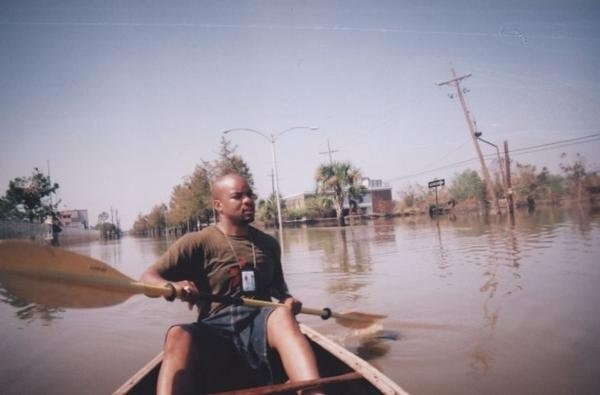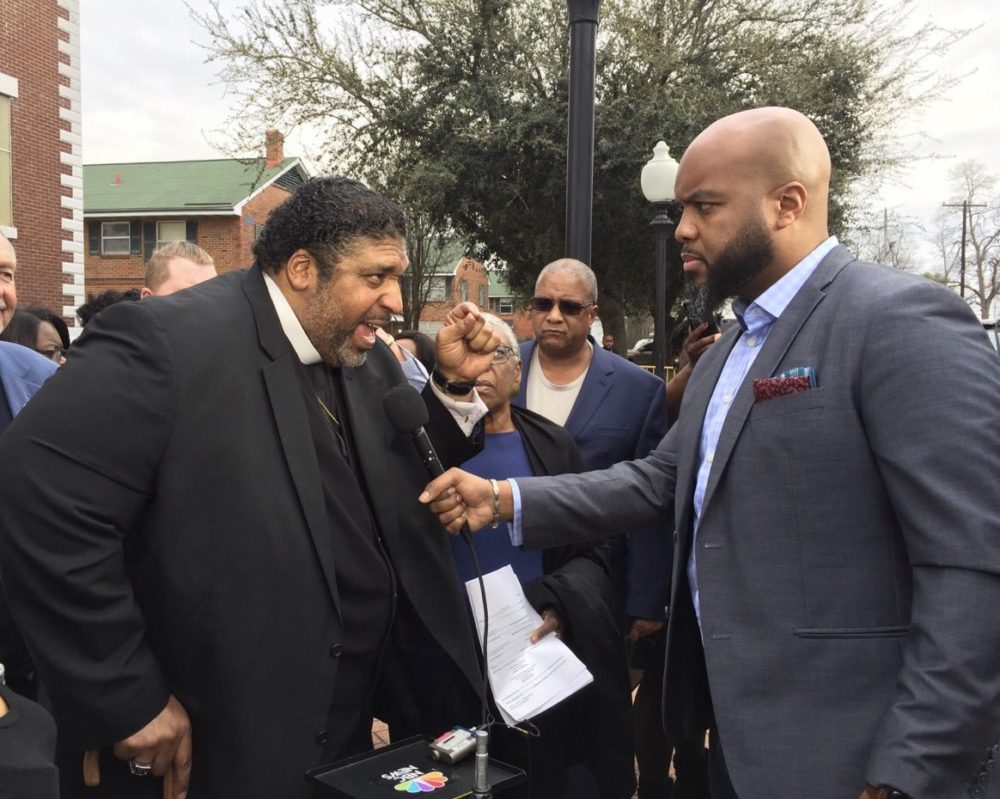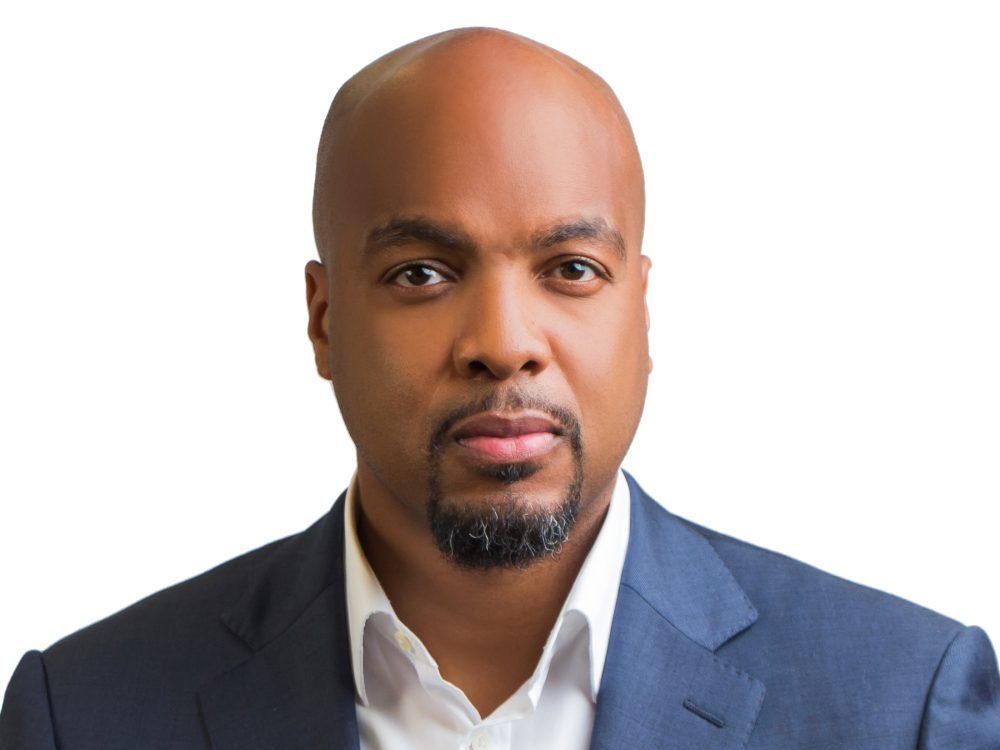[ad_1]
It is not often you see positive images of black men in mainstream media. Often times, there is an image of a mugshot, a body, or a profile story of someone who is seen as an exception — and not the rule. Fortunate enough, we have a keen sense of what black male excellence looks like; and even better, men who counter the narratives that are often skewed. One of those men is Pulitzer Prize and Emmy award-winning journalist Trymaine Lee, who has had the unique experience of amplifying the voice of unheard and underprivileged communities as a black man in America.
In 2012, Lee joined NBC and MSNBC as a National Reporter. Now, as a correspondent for MSNBC, he covers social justice issues and the role of race, violence, politics, and law enforcement plays in America. Prior to his current position, he worked for the New York Times, Huffington Post, Philadelphia Tribune, and a host of other outlets, where he earned his chop as a journalist.
Lee says his journey as a black man in this country has shaped him into the reporter he is today. The South Jersey native comes from a modest background, where people worked hard for that they needed and were confident about what they had to offer the world; which included placing high value on themselves.
“I can remember being six or seven years-old; and in the morning, before I would go to school, I would stand in front of the door and my mother was there kneeling down in front of me, and she would say, ‘I am,’ and I would say, ‘somebody’,” says Lee.
Moments like that taught him the significance of feeling special and the agency of having something to offer despite how much he had.
“I went out into the world feeling really special about myself. No matter what was going on in the world, in the community, at home, or in school I knew that I was special I was somebody and I could handle whatever was coming my way,” he adds.
And he continues to hold that affirmation closely to his heart today; he says it carries him. For many black men, feeling special is something they long for, especially depending on their upbringing. And Lee works diligently to make others feel that way in the form of accurate storytelling and by seeing people for who they are and not just as a news story subject — something he learned as a curious child who was eager to understand both sides of the story.
The Call to Action
Lee recalls his first experience of that call to action in 1985, while watching the news with his mother after the MOVE Bombing in Pennsylvania.
“I remember sitting on the couch with my mother and watching the news and we were kind of stuck watching this.”
On May 13, 1985, the Philadelphia Police Department dropped a bomb on the liberal group MOVE in West Philadelphia. After multiple conflicts between the group of black activists, the police chief at the time gave an executive order to use military force to destroy the organization’s headquarters, which ultimately killed 11 people and left a predominantly black community in ruins after the massive explosion and fire.
At the time, Lee recalls not being able to comprehend why or how such a thing could happen, but he remembers his mother’s honesty and candor about how black people were treated in America. Her truth coupled with their reality, and his passion for reading literature by black authors and playwrights, became the fuel which ignited his passion for reporting.
“I think there was a turning point when I realized that I could use my early passion for writing to connect that to the world around me,” says Lee.
And that passion eventually led him to become a local reporter for publications like the Philadelphia Tribune and the Times–Picayune, where he covered Hurricane Katrina live and won a Pulitzer Prize for his reporting.

Trymaine Lee In the aftermath of Hurricane Katrina – 2005 (Courtesy: Trymaine Lee)
Prior to those experiences, one that shaped him the most was during his time as an intern for New York Daily News on the police and crime desk.
“I’ll never forget arriving to crime scenes and seeing my first bodies before the police got there. And seeing these young men who looked just like me. I saw aunties, grandmothers, and moms who looked just like me. They were my people. And I remember being shaken in a certain kind of way. And through my writing, capturing those last moments of life and death for so many people; it connected me even further with the communities I cared so much about,” says Lee.
In addition to the power of connection, it taught him compassion and the weight of his responsibility of a being a black male reporter.
A Soldier Without a Sword
“Being in the community, stopping by the church, going to the activist’s crib, and sitting on sofas and front steps and really being ground-level mattered.”
Lee says it still matters as a national reporter who often times is further removed from the story. Yet, he still makes time to be on the ground when he’s not reporting from 30 Rock, which requires a healthy balance, especially since all eyes are on him.
“I maintain the same thing that I was doing when I was at the Black Press in West Philly and it’s the same thing that I’m doing here at 30 Rock,” says Lee.
His commitment is also the same, especially as he covers matters like politics, gun violence, the role of race, and law enforcement as a black man first and as a professional.

Trymaine Lee interviewing Rev. William Barber (Courtesy: Twitter)
“No matter where I am, I’m still hinged to who I am in the community from which I come from and who I’m speaking to. That’s always the balance. So many of us lose ourselves up here in this rare air…”
Authenticity and Consistency Reign
Staying in touch with people in the community continues to teach Lee resilience although that is a term he is unlearning to describe people.
“No matter how society or the government has tried to destroy certain communities — the deprivation, the police force, mass incarceration, exposure to toxins, pollution, lead levels that are almost criminal — the people bend, but they don’t break.”
“I was in New Orleans for the anniversary of Katrina and I was on the air, and I was talking about resilience and how these communities are so strong despite not having the access to resources and health care, wealth and all of these things and sister turned to me and she said, ‘you know I hear that word resilience a lot, but, resiliency is not a natural state.’ And it struck me because we sometimes hold it as a badge because people can take a lot and bare the weight on their shoulders and still remain standing which is a point of pride, but the systems that operate around us, that guide and control our lives from the day that we’re born until the moment that we’re dead; that’s not natural,” says Lee.
With truth and fairness at his core, Lee hopes his work inspires people to become more civically engaged despite the national moment of fear mongering we live in.
“Forget about Donald Trump for a moment. Forget about 2020 for a moment. Let’s talk about what’s happening in Ferguson, Missouri; Baltimore, Maryland; or Camden, New Jersey. If you do not play some role in choosing your destiny and your future someone else will. And may not be in your best interest.”
He went on to express that “Black Americans have yet to exercise full agency as American citizens.”
As someone who takes pride in his work and has climbed the ranks, Lee encourages others to do the same despite opposition or what others think of you.
“It’s about the work and believing in yourself. And it goes back to day one when my mother would get on her knee and say, ‘I am’, and I would say, ‘somebody’. I am somebody.” declares Lee.
[ad_2]
Source link


